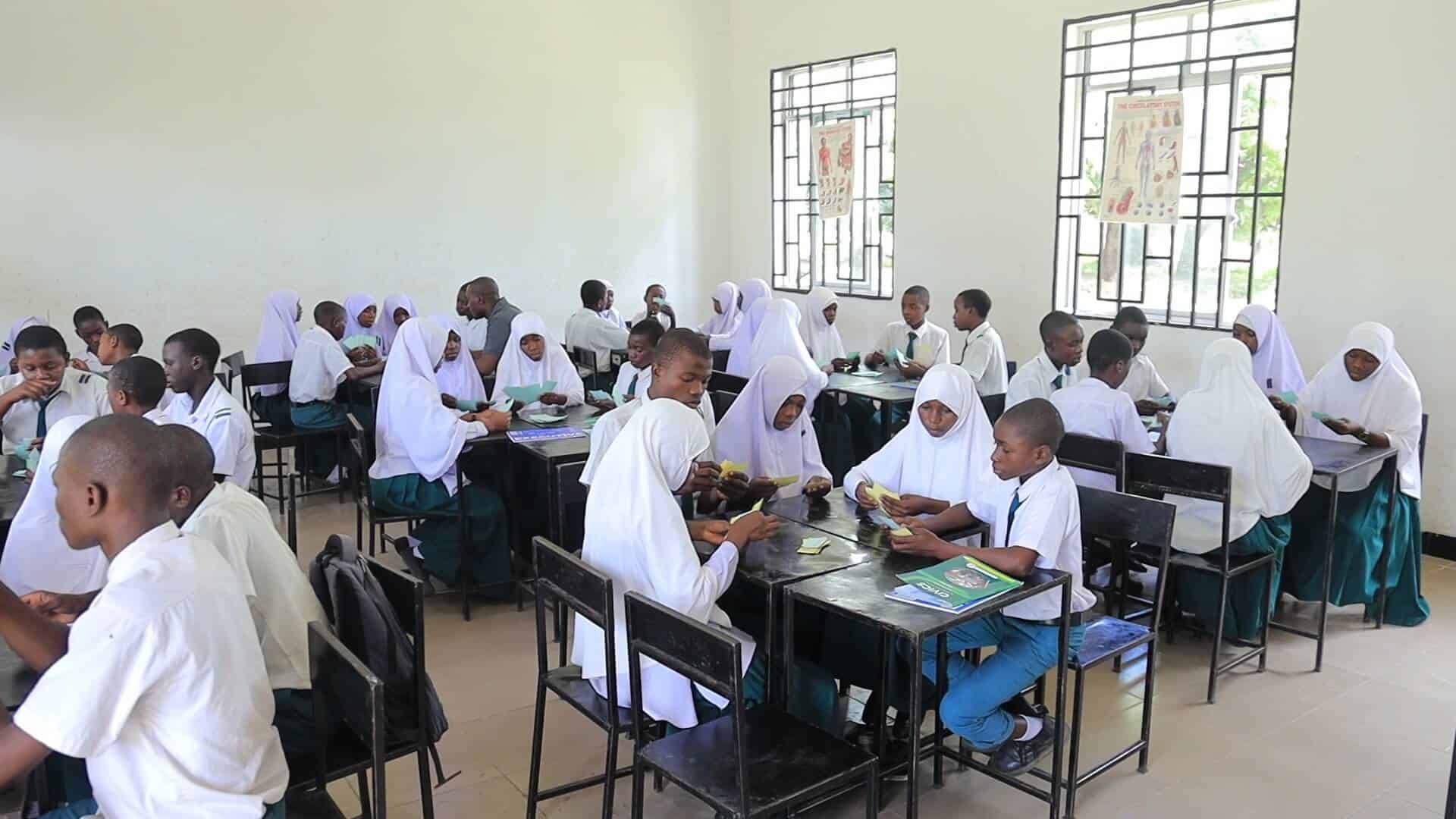Teaching is one of the most important professions in history and human development. The profession has been producing people who support professional growth that is used in the implementation of various social, political, economic and cultural responsibilities. Doctors, engineers, nurses, lawyers, attorneys, journalists to name a few are among the products that came from the work of teachers.
But in order for the profession to be more productive and bring positive results, it needs to add innovative things
that will make teaching easier. That is why the Aga Khan Foundation (AKF) decided to come up with the Schools2030 project to help teachers become innovative in teaching.
The Aga Khan Foundation (AKF) is a private, non-denominational, international development agency of the Aga
Khan Development Network (AKDN) promoting creative and effective solutions to selected problems that impede
social and economic development in parts of Africa and Asia.
AKF, in partnership with a global consortium of private foundations, is implementing Schools2030, a ten-year (2020-2030) participatory learning improvement programme based in 1000 government schools across ten countries. Using the principles of human-centred design (HCD) and focusing on the key transition years of ages 5, 10 and 15 years old, Schools2030 supports teachers and students to design and implement micro innovations. These low-cost and scalable innovations inform and transform education systems to improve holistic learning outcomes for the most marginalised learners worldwide.
In Tanzania, Schools2030 partners with 100 pioneering schools in Temeke Municipality, Dar es Salaam, and Lindi
Municipality and Mtama District Council in Lindi Region.
Schools2030 is enabling teachers to reclaim the discourse on ‘what works’ by generating school-level evidence on how to improve equitable quality learning outcomes through a focus on teacher and learner agency. At the heart of the Schools2030 approach is the recognition that schools should be the centre of social change, not the target of change.
Schools2030 is working with assessment partners in each of AKF programme countries, as well as at the global
level to develop a range of teacher-centred measurement tools to support holistic learning assessment.
Mtama Secondary School, which is located in Lindi Tanzania, is part of the 100 school sites implementing the Schools2030 project. Mr Goodluck Kapinga and Ms Asha Namjupa are one of the designers of the Engaging Students Remembering (ESR) cards idea. After engaging in Human Centred Design (HCD) process in 2021 round,
teachers at Mtama assessed Form Two students and realised that 90 (23 male, 67 female) out of 150 students, equivalent to 60%, could not remember what they were taught in the previous classroom sessions hence making them difficult to proceed with a new lesson as well as to pass their exams.
These teachers followed the HCD steps and came up with the idea of playing cards to boost students’ memory as
their micro innovation to address identified challenges.
“In the HCD training, we learnt to study the context and develop the solution that is relevant to the context, from
our context we noticed that students at the school and out of the school environment around Mtama locality play
cards, we falled on this interest as our innovation opportunity and tailored the game into the academic game,” said Mr Kapinga.
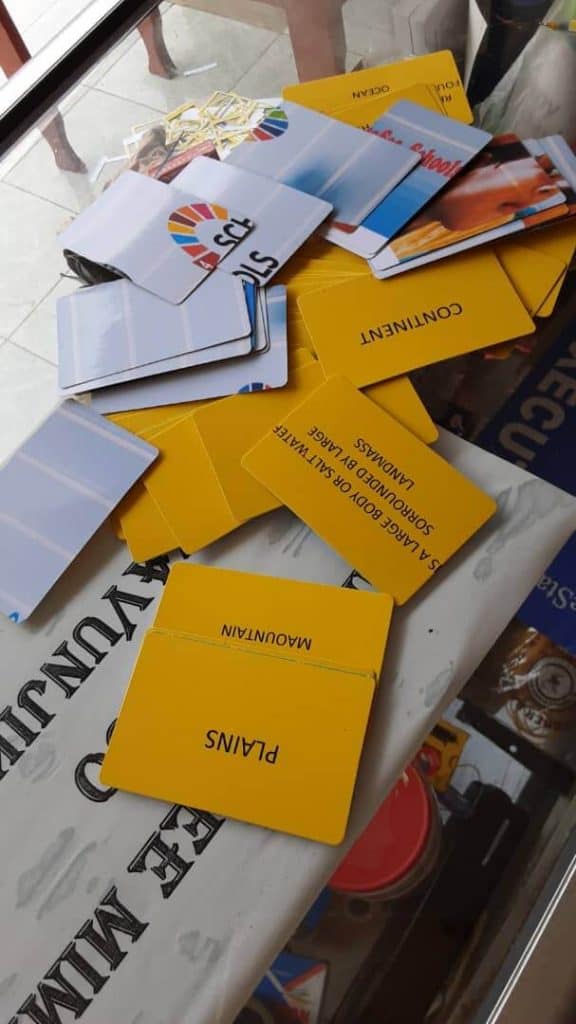
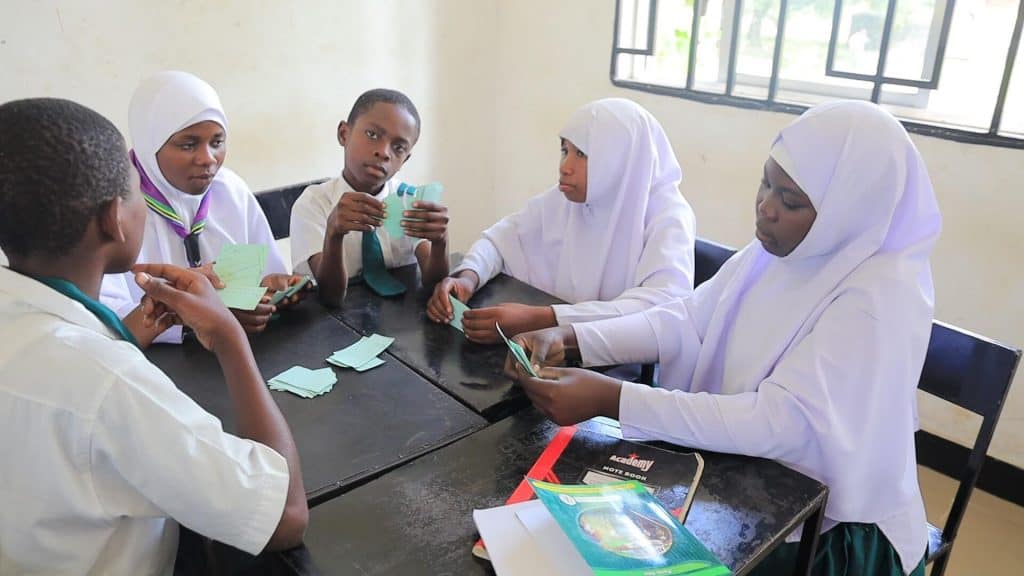
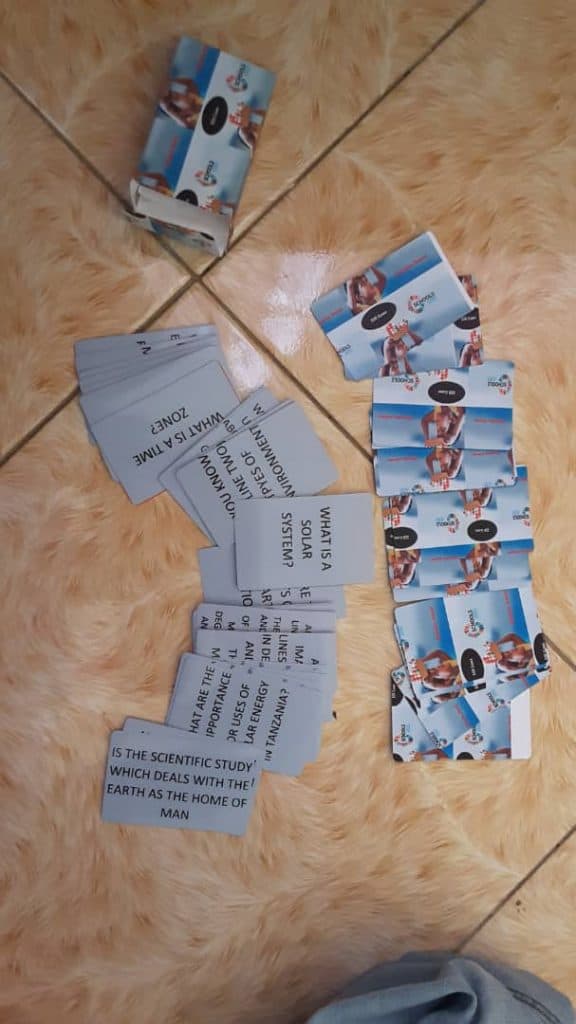
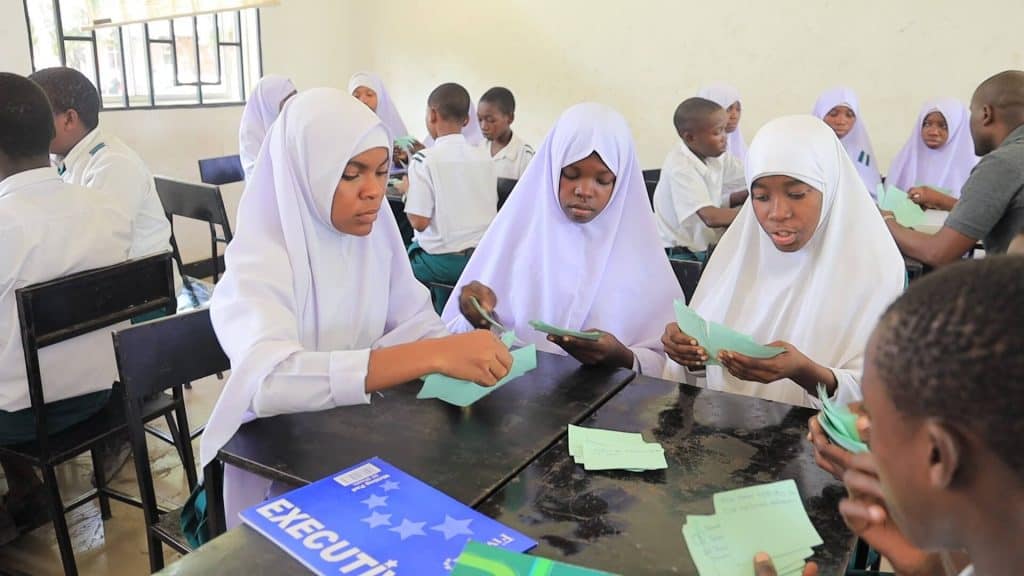
How playing cards for memory (ESR) work and the rules of the game
Teachers developed multiple pairs of cards with a list of questions and answers covering different topic, each topic has its own set of cards, one with key word or question while the other with respective answer on a certain topic, each question is printed on its own card and likewise each answer is printed on its own cards, these pairs are normally mixed up by shuffling the cards like how it is done in the ordinary playing cards. Usually, a teacher will be guiding students to play, however, students play the cards on their own. Sometimes it is not necessary for teachers to be there as the students already know the rules of the game.
The students are usually divided into groups of 4 to 7 people, a mixture of both boys and girls. One student reshuffles the cards with the topic of the day until the question and answers are totally mixed. Then when all are mixed, he/she divides five cards to everyone, beginning with the student in the right hand/ clockwise of the student who did the cards reshuffle play a card by reading it loudly and place it on the table, if it is an answer or question the next student on the clockwise should play by checking in the five given cards if has a matching pair of the card, if not any of the card matching is found he/she needs to pick another card from the bundle of cards and let the next student clockwise do the same procedure, if he finds a matching card, he will have to read it loud and place it on the table, if it is a wrong pick answer then he is penalized with picking two more cards. The first person to finish the cards will stay aside, letting the rest repeat the game.
“This game can be played at any time, even during the afternoon after lunch when the students experienced tiresome the game makes them active, it can also be for rehearsal in any topic or any subject, it is cheap since it uses locally available resources and it is an interesting game,” says Ms Asha Namjupa, a co-innovator of the ESR game solution.
Impact and next steps
After playing this game for 6 months as part of testing whether this innovation is worth it, the assessment shows 87 percent of the Form Two students remember what they were taught in the previous class sessions unlike what it was before as only 40 percent could remember. Teachers have reported to observe teamwork developed out of this game; other learning outcomes have been altered by this game. Students have developed an interest in studying, they have good intimacy with their teachers when compared before. Critical thinking and problem-solving are the other outcomes that the Form Two students have improved by merely playing this game.
Teachers are thinking of developing cards that are inclusive, they can be played by students with lower vision or
with blindness. They are looking forward to technical support on how to go about it.
“We believe this is going to be helpful to all students around Tanzania and the world in general. No wonder we might have the digital version of the game if we get good specialists to support digitization and make it inclusive, the blind and students with low vision impairment will enjoy and benefit from it,” says Mr Kapinga.
This story was originally published in The Citizen newspaper on 7 October 2022
